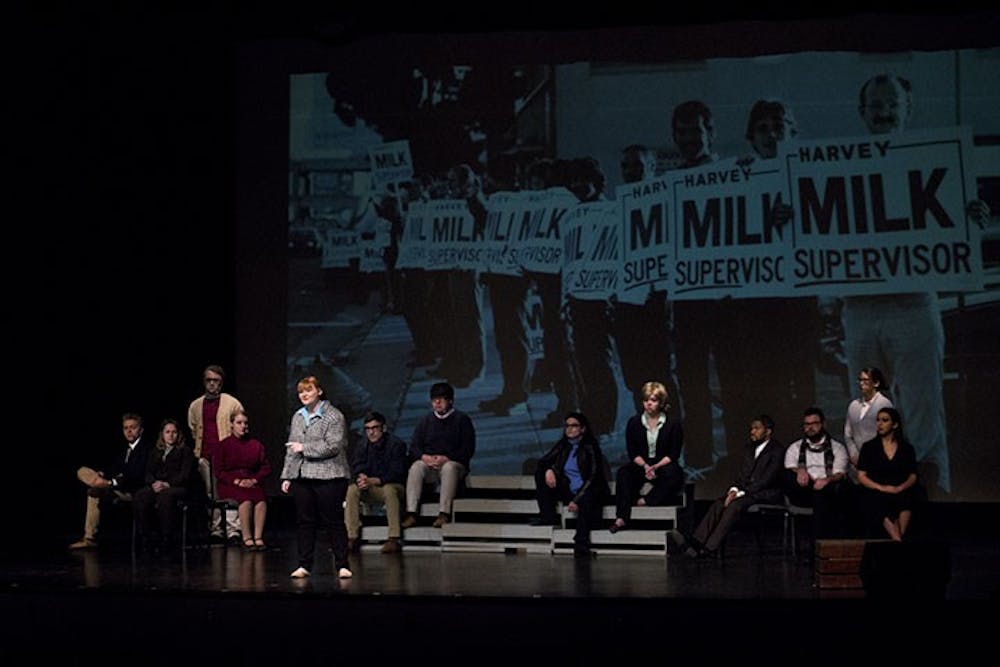Actors were huddled on stage and clustered in groups. Bright yellow lights illuminated their faces, and each person was poised with confidence. A sense of gloom and doom was blanketed over the audience as the cheerful pre-show music came to a stop. The first line echoed throughout Memorial Auditorium Saturday evening.
“I came out at 14. I came out at 14. Even though I lived at home for several more years, it has never been “home” again for me,” the ensemble on stage said.
Right from the start of the show, the harsh reality of LGBT Americans in the time of Harvey Milk was captured.
Milk was introduced through powerful monologues that were presented by his friends, coworkers, family and fellow LGBT activists.
Milk was the first openly gay elected official in the history of California and served 11 months in office in 1977 as a city supervisor in San Francisco. He paved the way for current and future LGBT legislators and was a bright light in a time of intense darkness for the LGBT community.
However, Milk was assassinated in 1978 along with George Moscone, the San Francisco mayor.
Throughout the show actors delivered speeches, anecdotes and thoughts on Milk and his activism. Several LGBT legislators and activists were featured in the story, such as Robin Tyler an activist and comedian who called for the first National March on Washington in 1979 and one half of the first lesbian couple to marry legally.
“Harvey Milk was a great gay visionary whose politics extended way beyond the gay community,” Tyler said. “He was progressive, he was daring, he was unapologetic, he was forceful and he was right, most of the time.”
The accomplishments of other activists such as Cleve Jones a co-founder of the San Francisco AIDS Foundation are also highlighted in the play. Jones delivered a hard-hitting speech on the AIDS crisis, and how it was handled. The stigma against AIDS in the 1970s and 1980s was debilitating, and Jones brought the truth of the matter to the center of the conversation.
With a particular kind of grief that only those who suffered true loss understand, Jones said, “Now you have to understand, in those days gay men died and disappeared. There were rarely obituaries, there were almost never funerals or memorial services — unless they were big deal people — because families were so ashamed of them.”
The audience watched in silence as actors and ensembles spoke about Milk. Praise was given, and secret thoughts were revealed through the actors.
Not all the stories about Milk were happy memories — some tales recounted hateful letters, protests and Milk’s assassination. In the end, characters who were all real life politicians, came to peace with the death of Milk. Each would then go on to write their own story in honor of Milk.




The Slate welcomes thoughtful discussion on all of our stories, but please keep comments civil and on-topic. Read our full guidelines here.